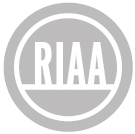 The Recording Industry Association of America's annual commercial piracy report has been published. Since it is on the subject of commercial piracy, it does not deal with Internet piracy (e.g. file sharing of copyrighted music). The report shows that trafficking in pirated music is getting increasingly sophisticated with closer ties to organised crime. Pirate music distributors are producing and selling very high quality discs and artwork that closely resemble legit CDs.
The Recording Industry Association of America's annual commercial piracy report has been published. Since it is on the subject of commercial piracy, it does not deal with Internet piracy (e.g. file sharing of copyrighted music). The report shows that trafficking in pirated music is getting increasingly sophisticated with closer ties to organised crime. Pirate music distributors are producing and selling very high quality discs and artwork that closely resemble legit CDs.
There has been a 58% increase in the seizure of counterfeit CDs (the CDs that are of such high quality they are easily mistaken for legit copies). Working with local authorities in the U.S., the RIAA seized 1.2 million discs in 2004, many of which lead back to CD production plants. The numbers of these "plants" are growing rapidly as technology continues to advance producing more equipment to make high quality copies of music at high speeds.
The RIAA claims that CD-R reproduction in the eastern half of the United States is now dominated by organized criminal syndicates intent on monopolizing the illicit market share by operating on high volume and very low profit margins. While huge amounts of pirated CDs are needed to create the profits the criminal organisations desire, the RIAA has praised the local police authorities whose actions have forced the sellers to change their habits.
Because of increased litigation against these pirates, many that still exist now are forced not to keep much pirated product on hand which has led to the RIAA's searches confiscating more "raw materials". Seizures of counterfeit labels for example rose a dramatic 372%. Seizures of CD burning equipment has risen also by nearly double the 2003 figures whereas the seizures of counterfeit CD-R's (finished product) in these cases declined by 27%.
"Prosecutors and policymakers at all levels of government increasingly recognize that piracy operations not only undermine the continued investment in new music but affect the quality of life of communities and deprive state and local governments of tax revenues," Buckles said. The RIAA is keeping a main focus on the piracy of Latin music in particular is it is among the most heavily pirated genres.
"The RIAA's continued focus on the disproportionate level of piracy affecting the Latin music genre will continue to help to foster a better business environment and allow for future growth in the Latin music market," said Rafael Fernandez, Jr., Vice President, Latin Music for the RIAA. "There is no question that our efforts have made a real impact - an impact that will translate into real benefits for current and future Latin artists and their fans. We nonetheless know there is tremendous work left to be done."
Source:
top40-charts.com













